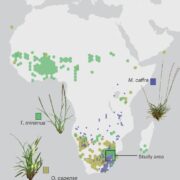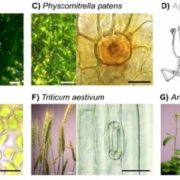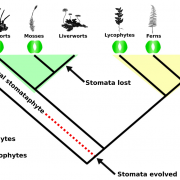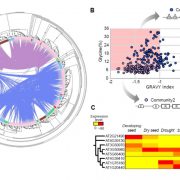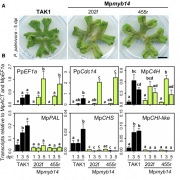Neo-polyploid infertility associated with defective pollen tube growth
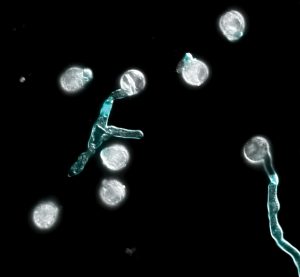 Polyploidy, arising from whole-genome duplication, is a common phenomenon in plant species. However, newly formed polyploids are often infertile and the mechanism(s) by which they adapt to their new karyotypes remain unclear. In this article, Westermann and colleagues chemically induced the formation of tetraploid Arabidopsis arenosa plants from diploid parents. They found that the lower fertility of these newly established tetraploids was due to physiological defects in pollen tube growth. They focused on two genes, AGC1.5 and ACA8, which are under selection in naturally occuring tetraploid populations of A. arenosa. Compared to their diploid counterparts, the majority of the established tetraploids, which have diploid-like fertility levels, exhibited specific allelic variants that differed by only one (AGC1.5) or two (ACA8) amino acids in their coding sequences, respectively. The genetic and phenotypic analysis of the F2 individiduals obtained by crossing the newly formed tetraploids with the established tetraploids showed that pollen tube growth was rescued in the individuals homozygus for the tetraploid alleles, while heterozygus individuals had an intermediate phenotype. This work is an example of the “reverse adaptation genomic approach”, starting from a set of candidate genes under selection and tracing back their contribution to plant fitness at the molecular level. It also offers new insights as to why new polyploids are often infertile and a possible way to improve this trait. (Summary by Carlo Pasini @Crl_Psn) Science 10.1126/science.adh0755
Polyploidy, arising from whole-genome duplication, is a common phenomenon in plant species. However, newly formed polyploids are often infertile and the mechanism(s) by which they adapt to their new karyotypes remain unclear. In this article, Westermann and colleagues chemically induced the formation of tetraploid Arabidopsis arenosa plants from diploid parents. They found that the lower fertility of these newly established tetraploids was due to physiological defects in pollen tube growth. They focused on two genes, AGC1.5 and ACA8, which are under selection in naturally occuring tetraploid populations of A. arenosa. Compared to their diploid counterparts, the majority of the established tetraploids, which have diploid-like fertility levels, exhibited specific allelic variants that differed by only one (AGC1.5) or two (ACA8) amino acids in their coding sequences, respectively. The genetic and phenotypic analysis of the F2 individiduals obtained by crossing the newly formed tetraploids with the established tetraploids showed that pollen tube growth was rescued in the individuals homozygus for the tetraploid alleles, while heterozygus individuals had an intermediate phenotype. This work is an example of the “reverse adaptation genomic approach”, starting from a set of candidate genes under selection and tracing back their contribution to plant fitness at the molecular level. It also offers new insights as to why new polyploids are often infertile and a possible way to improve this trait. (Summary by Carlo Pasini @Crl_Psn) Science 10.1126/science.adh0755


